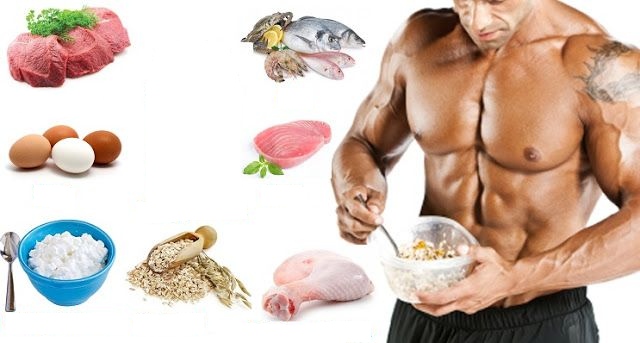Table of Contents
Want to Build Muscle and Lose Fat ? These Are The Facts About Diet and Nutrition That You Need To Know
Top 5 Sources For Protein
Proteins make up many different body tissues as well as the outer layers of our hair, nails and skin. Consuming protein is essential to our health. Because protein helps our bodies build muscle and promote muscle development. While improves athletic performance, and keeps us feeling full after a meal. Here are the top five sources of protein found naturally in foods.
Eggs:
Eggs are high in protein and are one of the cheapest foods that contain protein. Many people choose to eat only the eggs whites to watch their weight. However, much of the protein is found on the yolks as well-eating one yolk per day is actually healthy for you.
Beans:
A half a cup of beans contains the same amount of protein as 3 ounces of steak. Contains much more nutritional value. The fiber in beans will keep you regular and feeling full for hours.
Meat:
Lean meats such as skinless chicken breast or roasted turkey breast are ideal. Try and stick with white meats as they provide more protein and less fat, and always remove the skin from chicken.
Fish or other types of seafood:
Seafood is one of the best sources of protein and is usually extremely low in fat. Salmon is slightly higher in fat, but it is good fat such as Omega 3’s. This kind of fat is healthy for your heart and will not clog your arteries.
Milk, cheese, yogurt or other daily products:
Dairy products including soy are high in protein. Usually contain fortified nutrients and vitamins (such as Vitamin D), and calcium.
According to the Dietary Reference Guidelines, an adult woman needs about 46 grams of protein per day. Men need slightly more-about 56 grams per day. If you are having trouble consuming enough protein from diet alone, try a protein powder.
Eating Right to Build More Muscle and Lose Fat
You’ve probably heard that in order to gain muscle you must eat right a ton of protein. Protein – the patriarch product for procuring pounds – is the greatest component of a muscle building diet, but you also need carbohydrates, essential oils, certain sugars, and a host of other foods that conspire to catch your body up with what you are putting it through during a workout.
During your workout the targeted muscles are essentially ‘damaged’. The stress of the weights combined with repetitions tears the tissues that make up a muscle. Those ‘damaged’ tissues then send off for help, pulling on all the nutrients brought into your body through a healthy diet. When your body is topped up with a surplus of calories it can afford to repair stressed muscles in a somewhat permanent way.
So the healthier a diet, the better chances for building muscle and lose fat at the same time.
It is widely agreed that in order to bulk up muscles a person must consume more calories than are being burned off. The concept is perfect, other than its one flaw: the absence of information regarding the types of calories that are good for you.
In response to an inquiry regarding weight gain, Dr Dee, of Drdaveanddee.com, wrote, “all calories are not created equal. In other words, some types of calories are not equal to others for gaining weight. For Example, if I said that you need to eat 2,000 calories per day to gain weight and you eat 4 bags of chips each day, do you think you would gain muscle? Not likely.” He then goes on to explain that while certain foods like potato chips are high in calories, they are empty, totally nutrition-less calories.
Finding the right diet is vital to gaining muscle. And while you try to eat as many healthy calories as you can, you might find that introducing the amount needed to create a surplus each day is difficult. Luckily there are supplements designed to assist you in gaining weight. Muscle Labs USA offers a wide range of legal steroids and thermogenic fat burners specifically formulated to help you build muscle and burn fat. They help bring the building blocks of nutrients to your body and give you that extra caloric intake needed to push further.

